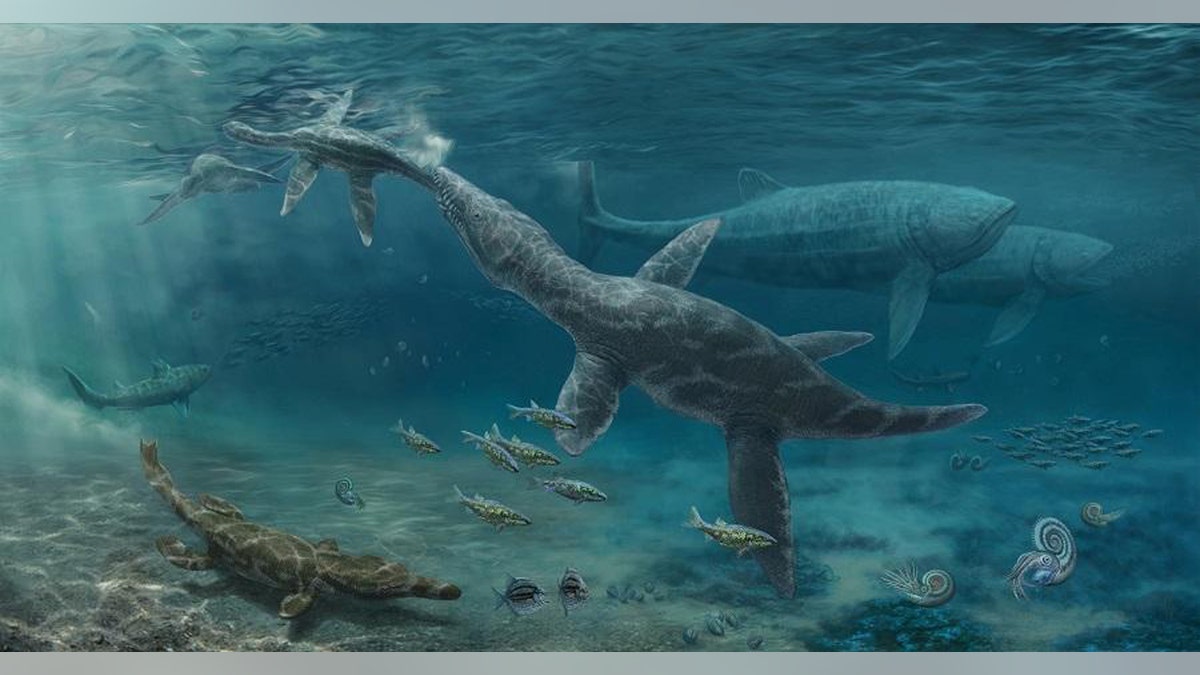
Artist's impression of Jurassic seas (Credit: Nikolay Zverkov)
A new study of fossilized teeth reveals that monster Jurassic-Era predators thrived in deep water more than 150 million years ago.
The study, from paleontologists at Edinburgh University, also shows that species that lived in shallow waters eventually died out.
"Teeth are humble fossils, but they reveal a grand story of how sea reptiles evolved over millions of years as their environments changed," said Dr. Steve Brusatte, School of GeoSciences, in a press release.
SCIENTISTS MAY HAVE UNCOVERED WHAT DINOSAUR DNA LOOKS LIKE
Dr. Brusatte continued: "Changes in these Jurassic reptiles parallel changes in dolphins and other marine species that are occurring today as sea-levels rise, which speaks to how important fossils are for understanding our modern world.
The study, published in the Nature Ecology & Evolution journal, analyzed the size and shape of reptiles living in tropical waters over an 18 million-year period, in what is now modern day northern France and the northern part of England.
"Groups did not significantly overlap in guild space, indicating that dietary niche partitioning enabled many species to live together," the study's abstract reads. "Although a highly diverse fauna was present throughout the history of the seaway, fish and squid eaters with piercing teeth declined over time while hard-object and large-prey specialists diversified, in concert with rising sea levels."
Smaller species used thin, piercing teeth to catch fish, while larger species had broader teeth.
NEW SPIKY-SKULLED DINOSAUR LIVED ON A LOST CONTINENT
"Deep-water species may have flourished as a result of major changes in ocean temperature and chemical make-up that also took place during the period," the researchers added in the statement. "This could have increased levels of nutrients and prey in deep waters, benefiting species that lived there."
STUNNING DINOSAUR DISCOERY: 170-MILLION-YEAR-OLD FOOTPRINT FOUND IN SCOTLAND
"Studying the evolution of these animals was a real - and rare - treat, and has offered a simple yet powerful explanation for why some species declined as others prospered," Davide Foffa, of Edinburgh University's school of geosciences said in the statement. "This work reminds us of the relevance of palaeontology by revealing the parallels between past and present-day ocean ecosystems."
Follow Chris Ciaccia on Twitter @Chris_Ciaccia
